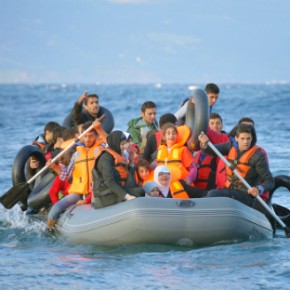Room at the inn? Syrian refugees hope for hospitality

The boat carrying Nabil Minas bounced in the surf off the Greek island of Lesbos as the Syrian refugee waded through the water to set his children on the rocky shore. Then he fell on his face and kissed the ground. A Christian, Minas crossed himself and covered his face with his hands, weeping with joy. Then he stood up and went around hugging everyone, including Lisbeth Svendsen, a Norwegian volunteer who was embracing Minas’s wife and daughter. “Thank you,” he said over and over.
Littered with piles of discarded life jackets and the black rubber of deflated migrant boats, this Greek shore marks the first major step in the journey of hundreds of thousands of refugees and migrants who are seeking safety and opportunity in northern Europe. Although winter is coming, the number of refugees has increased. By next year they will number in the millions.
Most are headed for Germany, where Chancellor Angela Merkel has opened the doors wide. How long the doors will remain open, however, is a huge question, especially after the terrorist attacks in Paris, which fed the xenophobia of anti-immigrant groups. It’s a crisis that challenges assumptions about what union means in the European Union.




